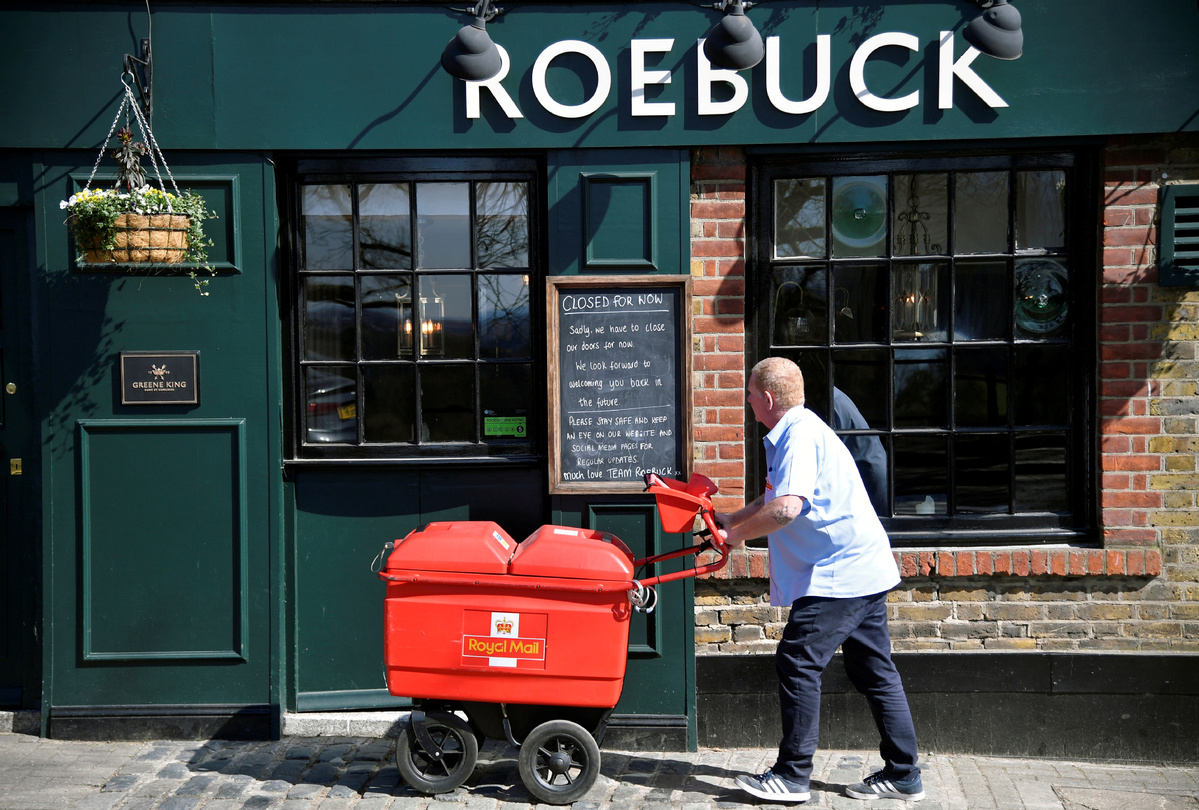Police fear 'New Year's Eve' over pubs reopening
By JULIAN SHEA in London | China Daily Global | Updated: 2020-07-01 09:01

Plans to fine parents over school attendance criticized as 'unhelpful'
A spokesman for London's Metropolitan Police Federation has warned Saturday's reopening of pubs after months of lockdown could result in a night as busy as New Year's Eve.
Concern has long been expressed at the timing of the move, and Tim Clarke said if good weather encouraged more people out, police face a hard night.
"People will be coming out in droves and if we have nice weather again… it will be a significant challenge with the further relaxation of COVID-19 guidance," he said. "This could have been mitigated by waiting until Monday to further relax the government guidelines to us all-but as always, policing and police officers will do the best we can in the challenging circumstances."
Metropolitan Police Commissioner Cressida Dick told the BBC the force was "absolutely prepared".
"You will see a lot of police officers out on the street," she added. "There will be a lot more ready should people be out of order, should people get violent. But I'm not predicting that at this stage."
Official figures released by Britain's Office for National Statistics, or ONS, have revealed the impact of the novel coronavirus on the British economy was bigger than realized.
Initial figures showed that in the first quarter, GDP was estimated to have fallen by 2 percent, but that figure has now been corrected after March, the month when lockdown was deployed, saw a 6.9 percent reduction, leading to an overall fall for the quarter of 2.2 percent, the joint-highest figure since 1979.
"Our more detailed picture of the economy in the first quarter showed GDP shrank a little more than first estimated," said Jonathan Athow, the ONS's deputy national statistician.
"Information from government showed health activities declined more than we previously showed.
"All main sectors of the economy shrank significantly in March as the effects of the pandemic hit."
This was announced shortly before Prime Minister Boris Johnson's much-heralded speech setting out plans for a major infrastructure program to lift the country out of the economic slump.
A wide-ranging speech covered topics such as educational opportunities, new house building programs, and increased tree planting to "build back greener and build a more beautiful Britain", but he warned the country is by no means out of the grip of the pandemic.
Although the government "wants to get back to life as normal, for as many as possible, as fast as possible," he said, "the virus is out there still, circling like a shark on the water".
Meanwhile, Education Secretary Gavin Williamson's suggestion parents who do not send their children back to school in September could be fined has received an unenthusiastic reception from one of the country's main teaching unions.
Most children have been away from school since March, with only those in special circumstances going in, and a limited part-time return for other students toward the end of the academic year.
Concern at the damage being done to learning has put pressure on the authorities to get children back in after the summer holidays, but Geoff Barton of the Association of School and College Leaders said fines were unhelpful, and parents needed a "period of grace" to allay safety fears.
"There will be many frightened and anxious parents out there," he said. "This is very much a case of building confidence that it is safe to return, rather than forcing the issue through the use of fines."
Meanwhile, many travelers from the United States hoping to visit European Union countries this summer face could disappointment after the country was left off the safe entry list because of its continued high prevalence of novel coronavirus.
Travelers from countries including Algeria, Australia, Canada, Japan, New Zealand and South Korea are welcome, and China could join the list if a reciprocal deal allowing EU travellers into the country can be agreed.
In March, when Europe was suffering at its worst, without any warning, US President Donald Trump introduced sweeping restrictions on travelers from the EU. Now, after more than 125,000 deaths in the US, and with continued reports of widespread infection, roles are reversed.
The EU insists the decision is on safety grounds, rather than revenge, as over the previous two weeks, the US had seen 107 cases per 100,000 people, as opposed to just 16 per 100,000 people in the EU.























